Creating an index in Word is essential when writing a book or reference work and you want to make it easier for your readers to navigate through your document. A well-structured index not only provides an overview of the main topics but also indicates where specific information can be found. Here you will learn how to build an index, add and update entries without having to manually edit page numbers.
Main Insights
- An index facilitates finding information within a document.
- You can efficiently define main entries and subentries.
- Update your index easily without manual changes to page numbers.
Step-by-Step Guide
First, open a blank Word document or an existing text to start creating your index.
Next, you should create or use an example text. In this case, we are using a one-page example text covering various geographical regions.
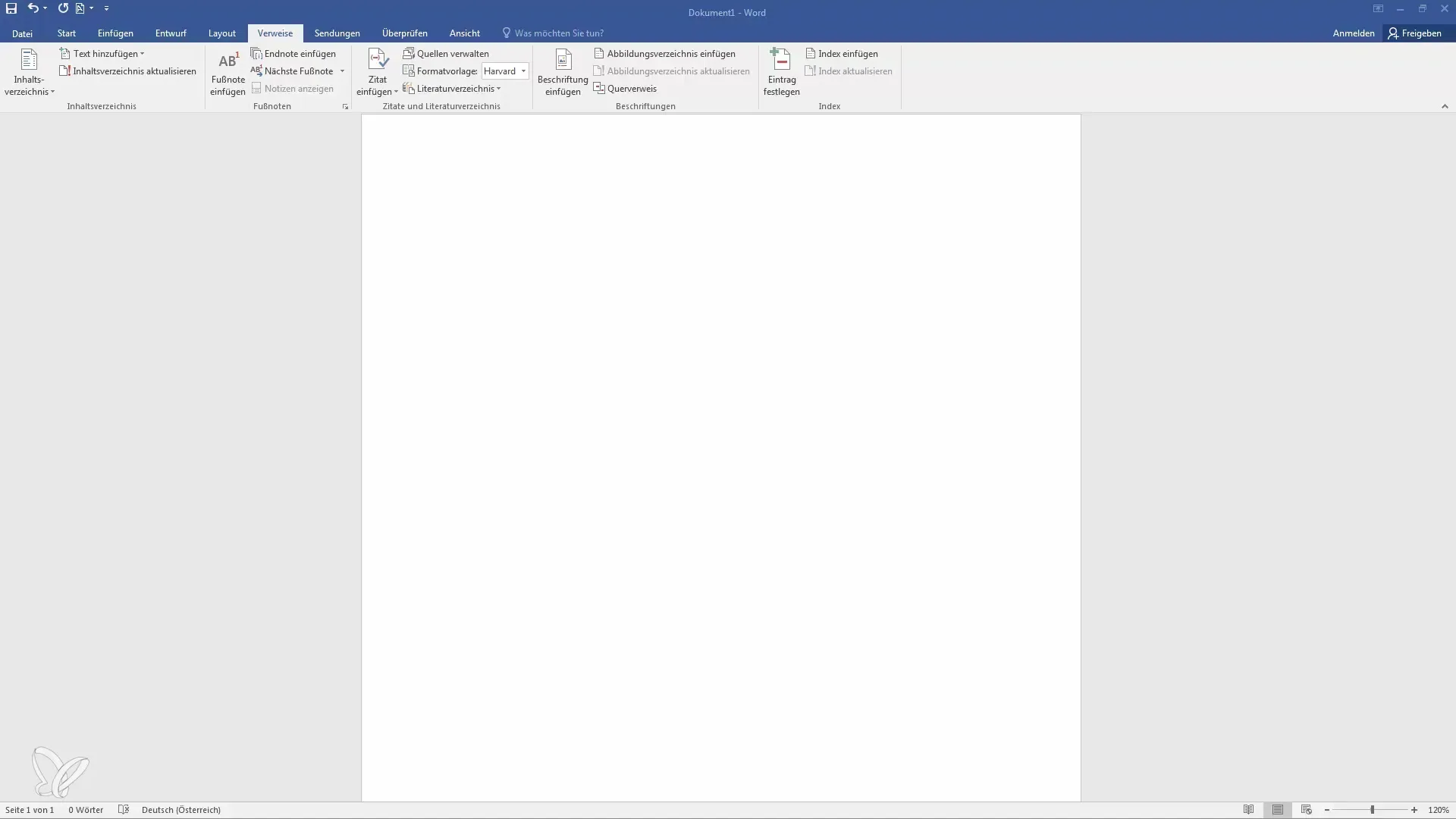
Then, set your entries. Go to the "References" tab. Select "Mark Entry" to start creating your index entry.
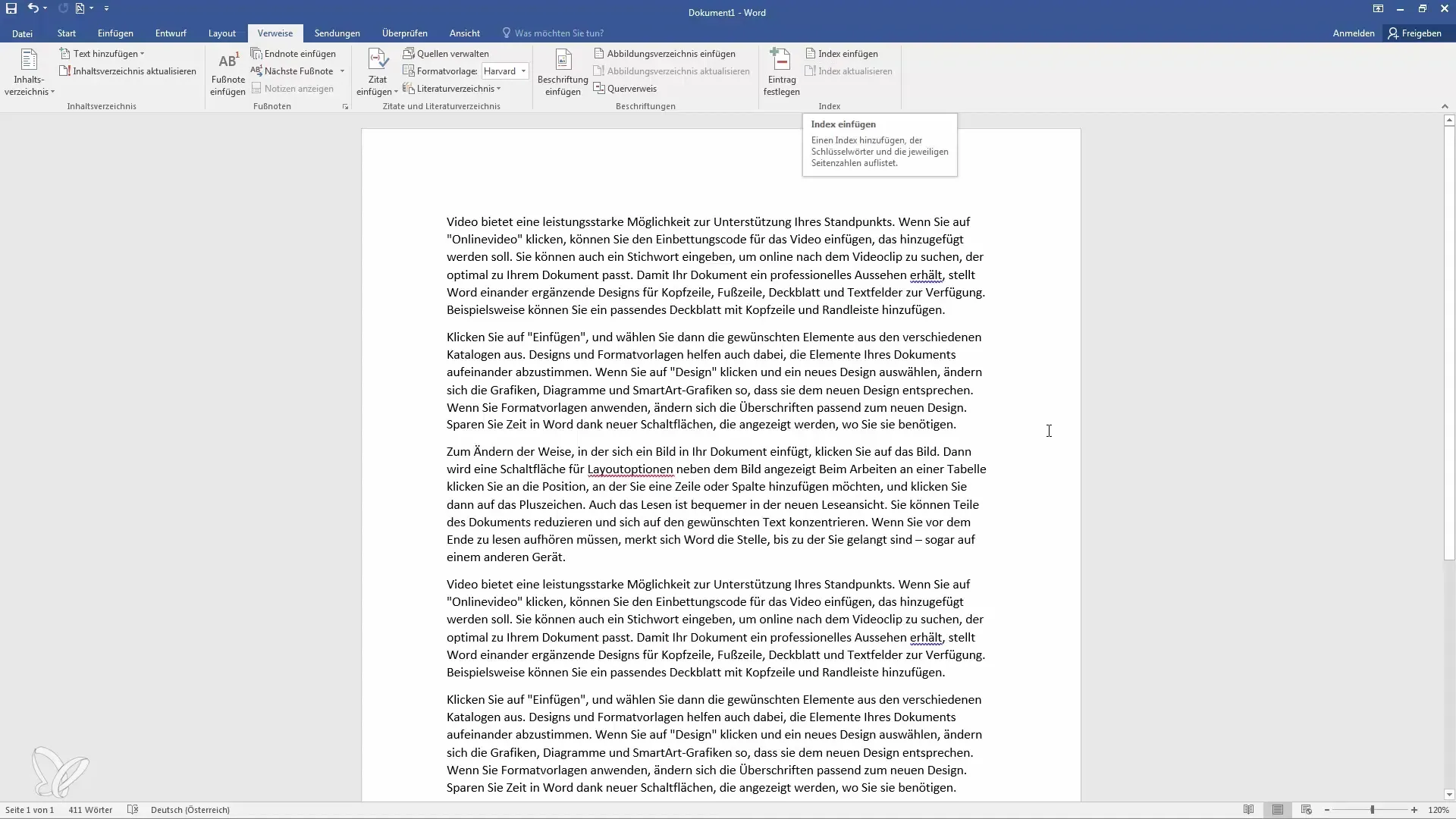
For example, use Europe as a main entry. Enter Europe and select it as your main entry. When you click "Close," this entry will be saved in your document even if you do not see it directly.
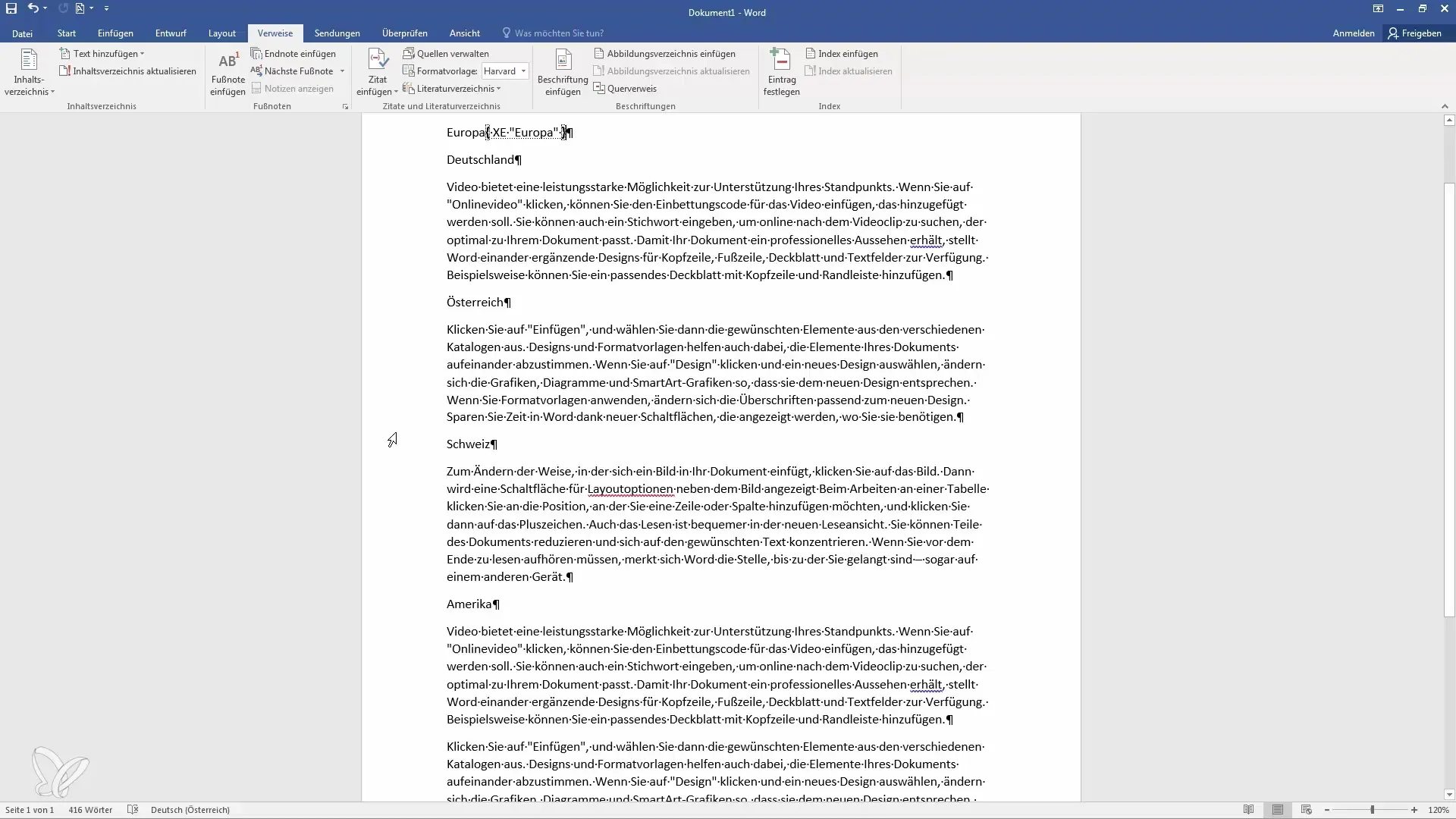
Continue with Germany as a subentry for Europe. Again, select "Mark Entry" and define Germany as a subentry of Europe.
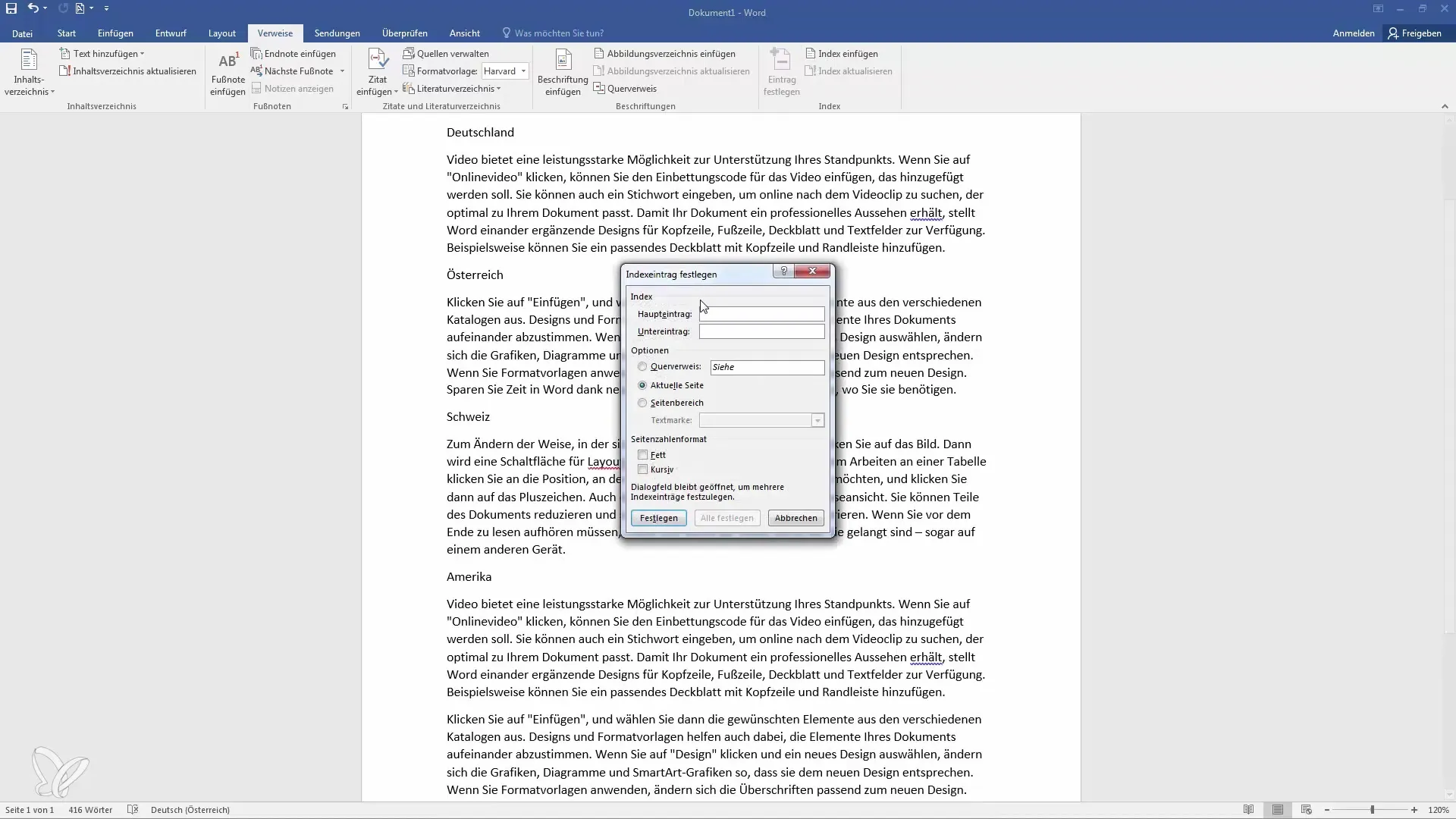
Next, go to the entry for Austria and also create a main entry for Austria. Repeat this process for Switzerland and America. Each entry will be automatically included in the index.
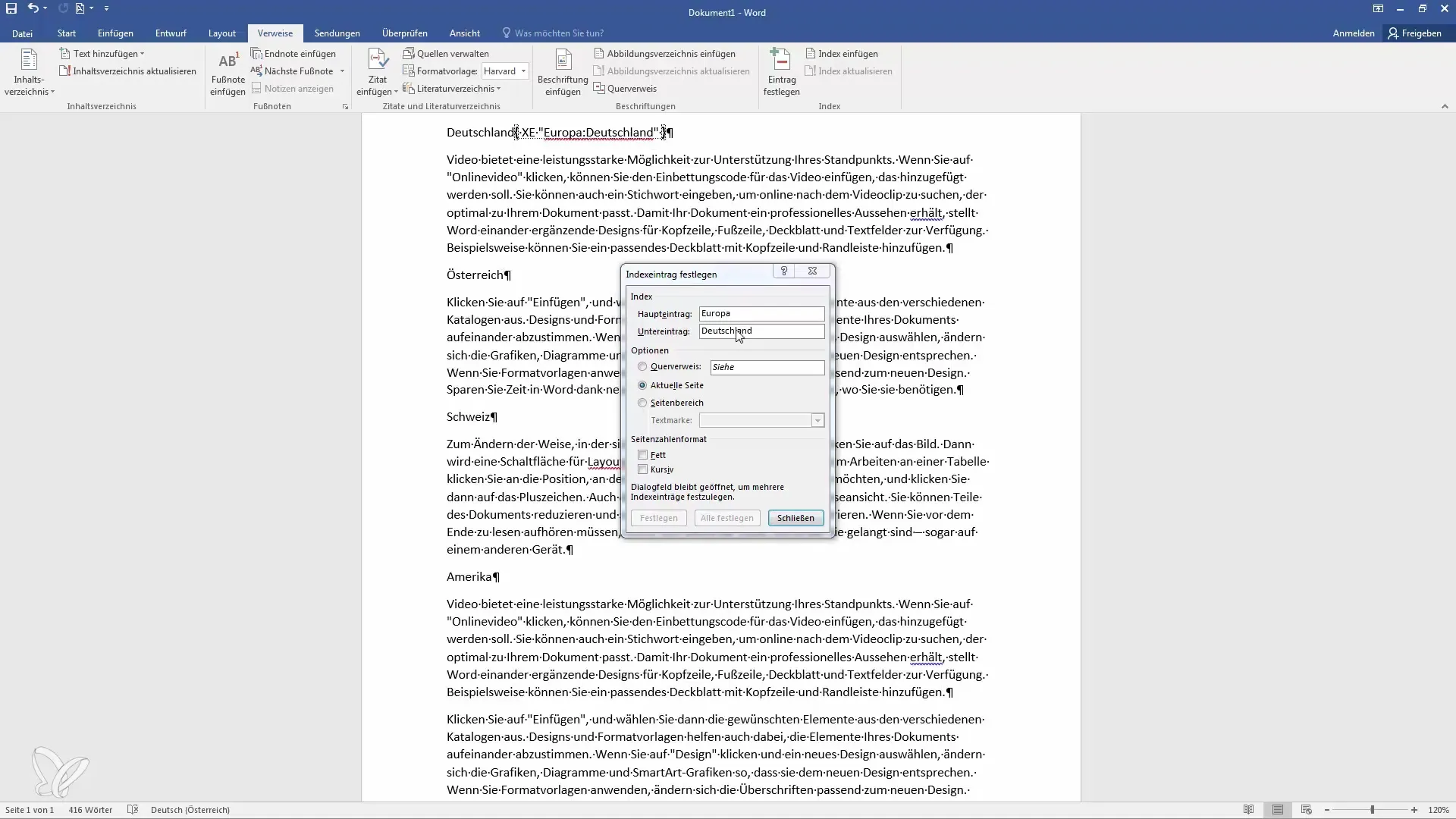
Once you have entered all countries, click at the bottom of your document to insert the index.
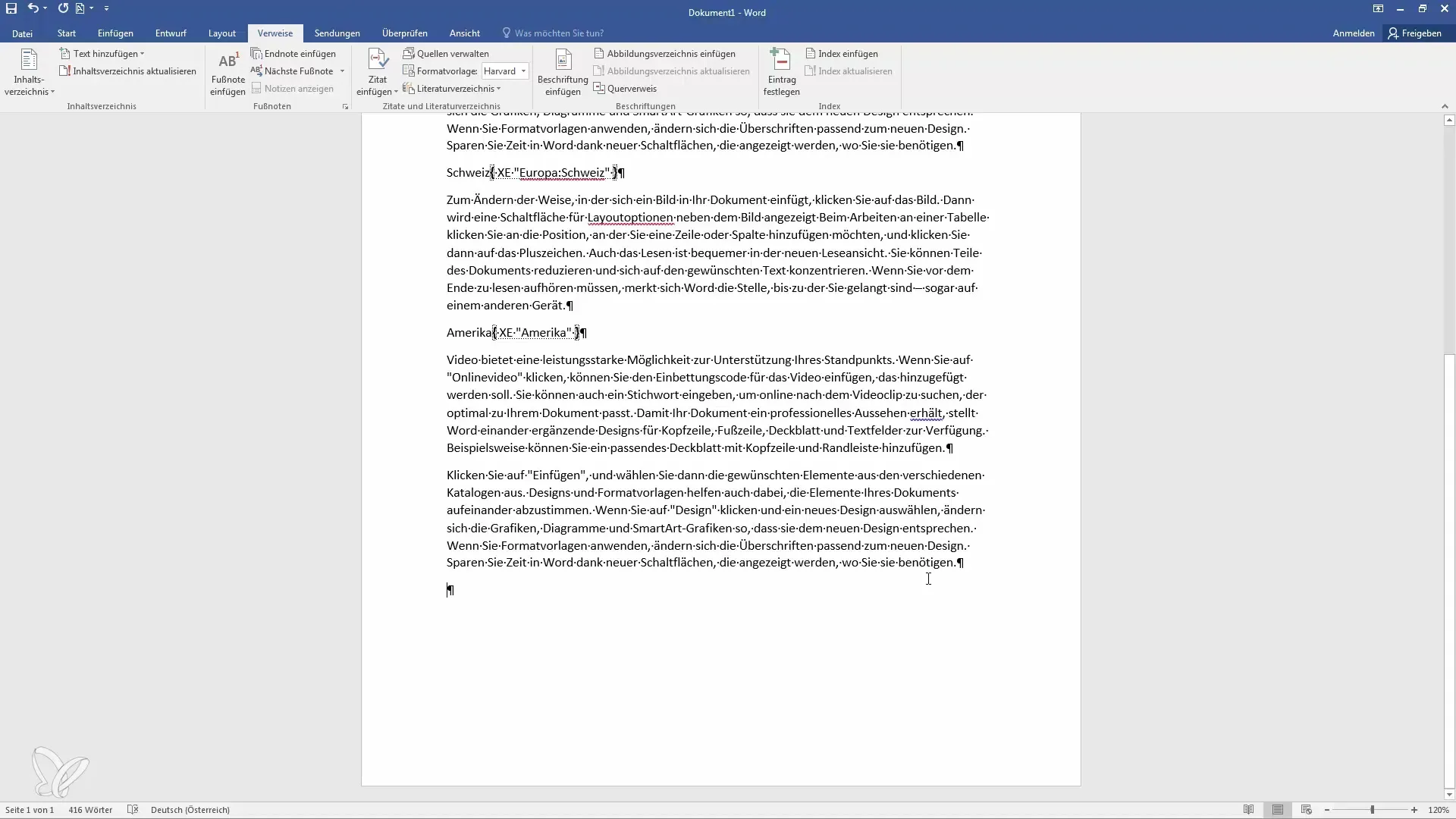
Define the parameters of your index, such as number of columns and the position of page numbers. Align the page numbers to the right with dotted leaders. Click "OK" to create the index.
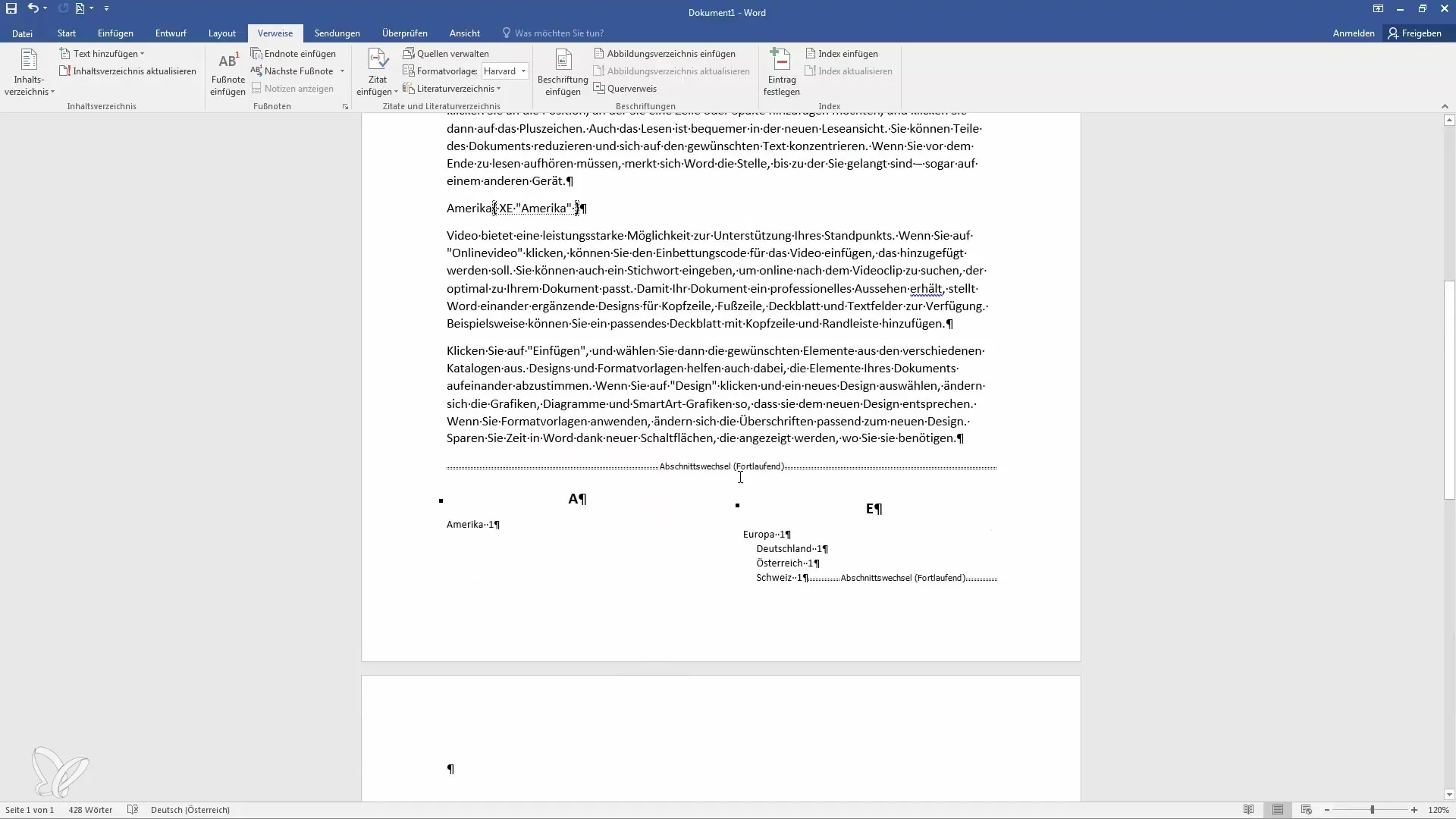
Now you should see your first index, which is structured and clear.
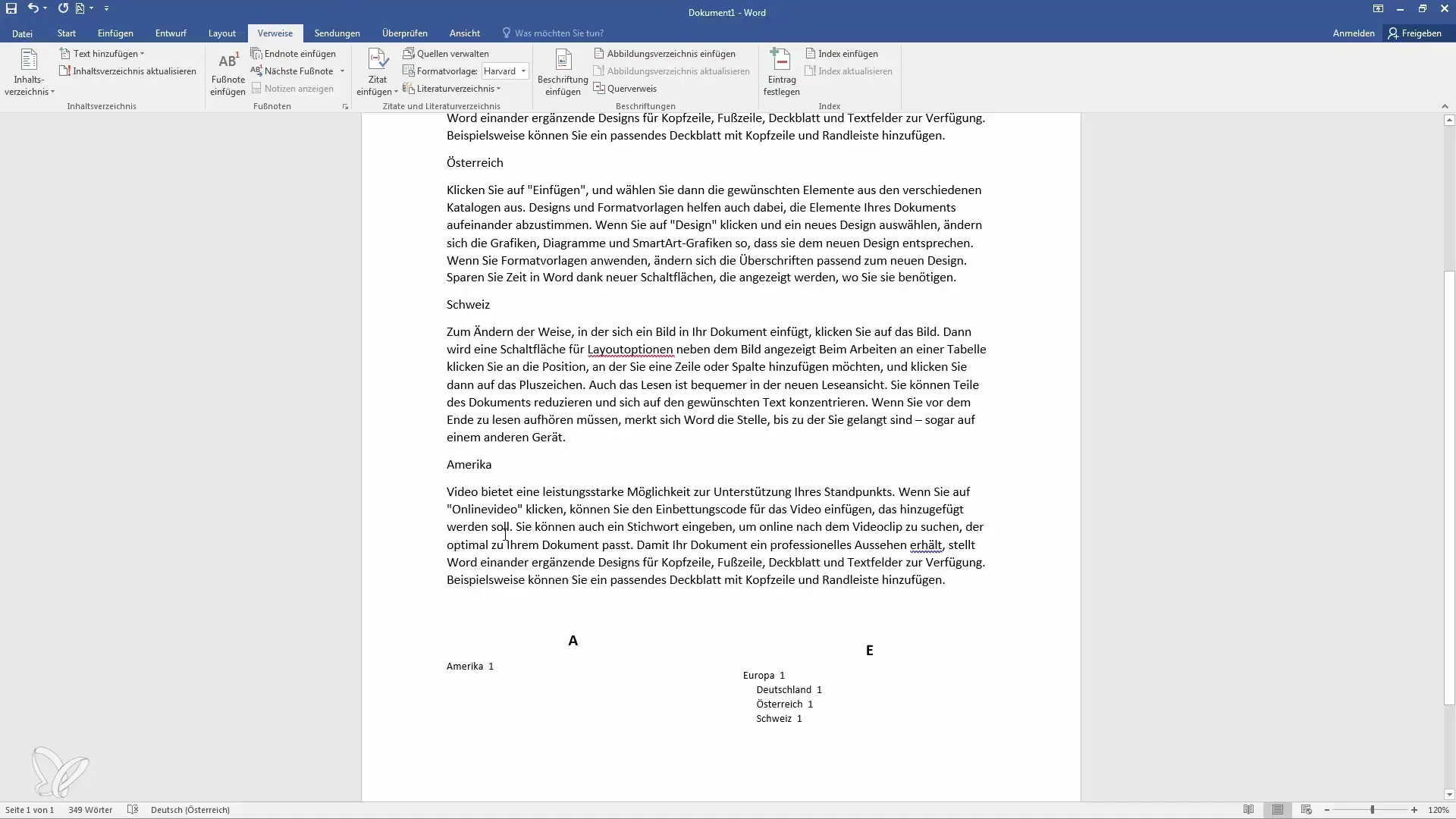
You can add more entries to see how the index changes. For example, add Asia and countries like Japan and the Bahamas to demonstrate the diversity of your index.
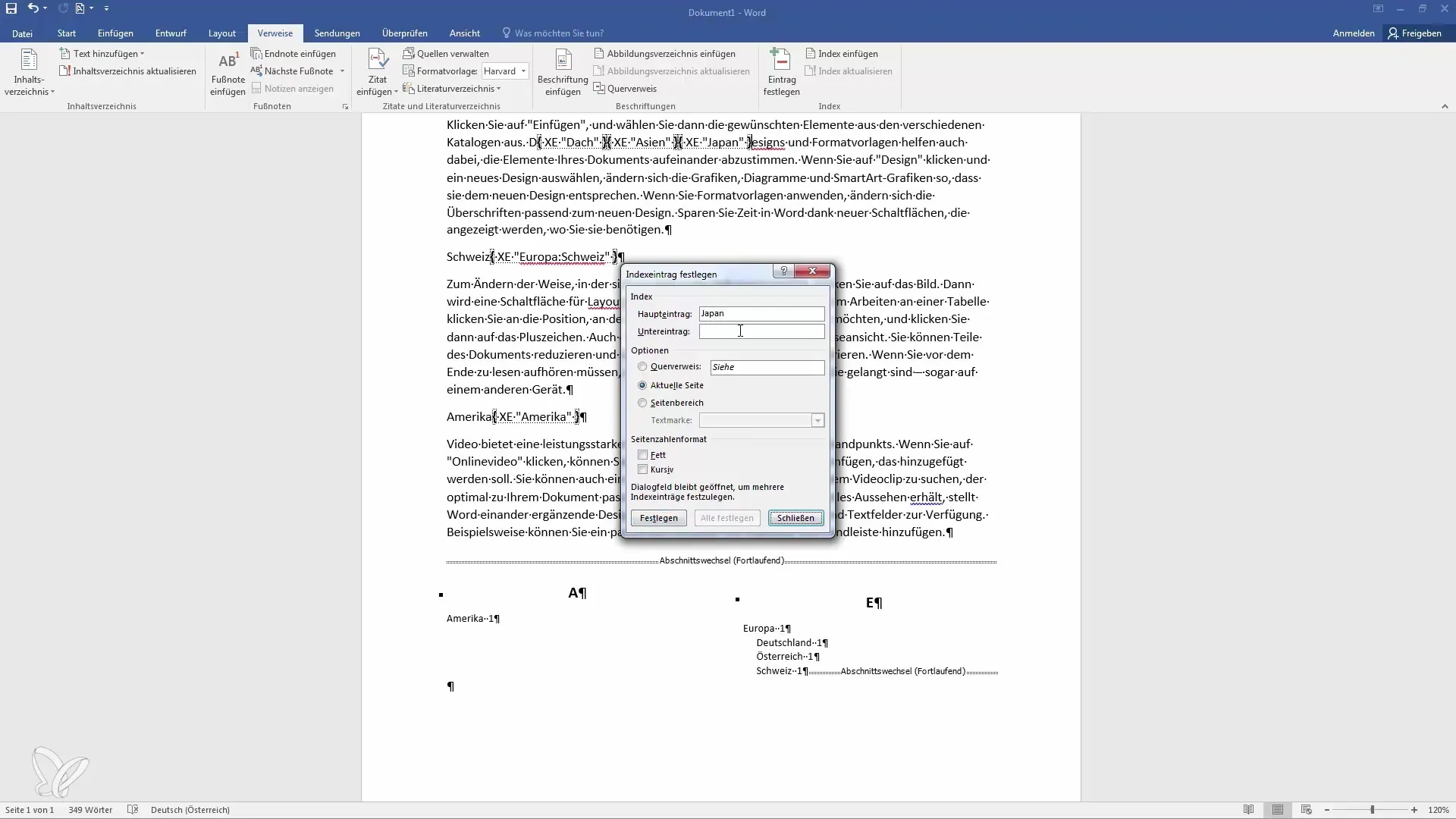
To update the index, right-click on the index and choose "Update Fields".
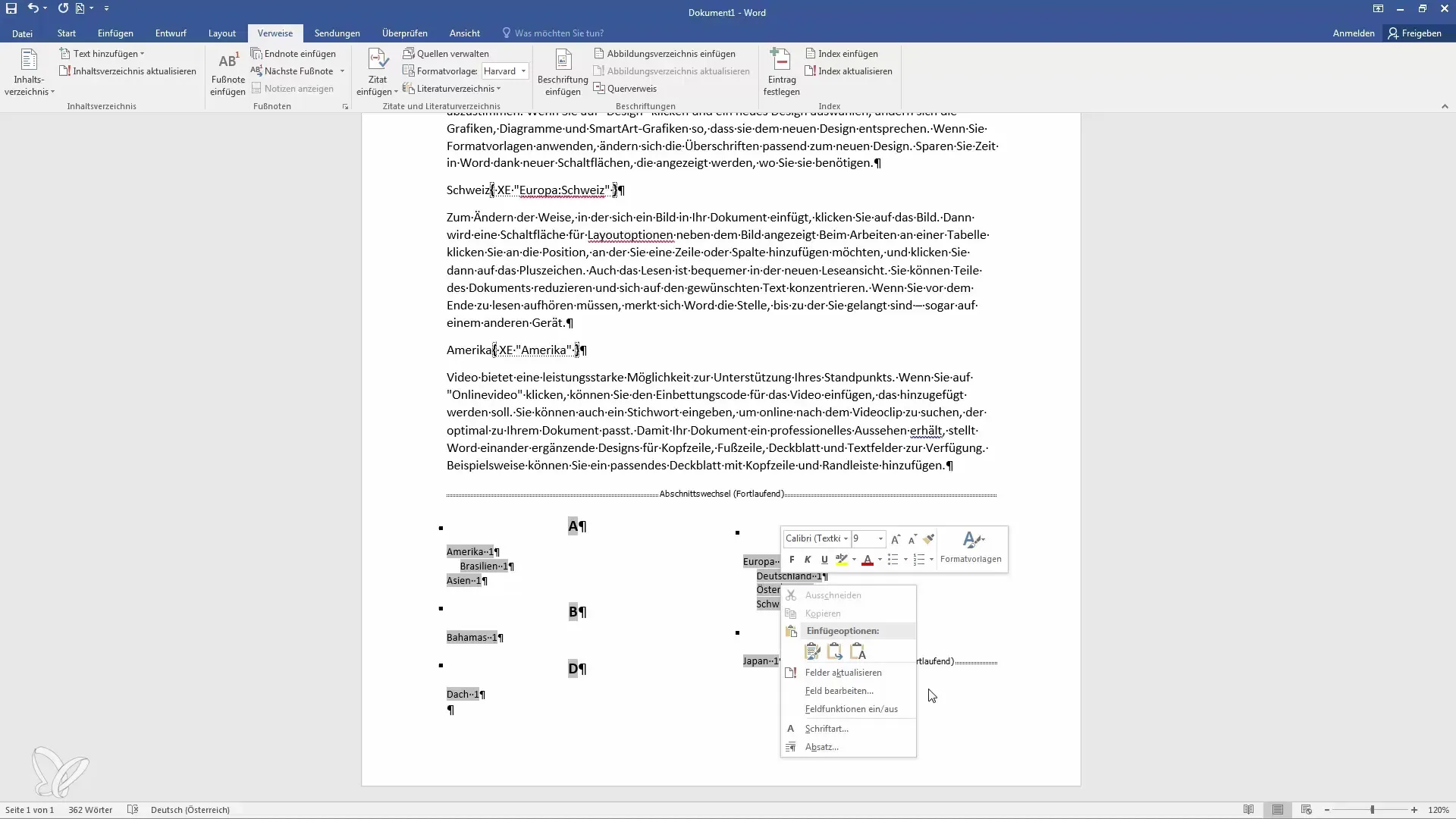
By doing so, you will see that new entries and hierarchies have been added, including Brazil under America.
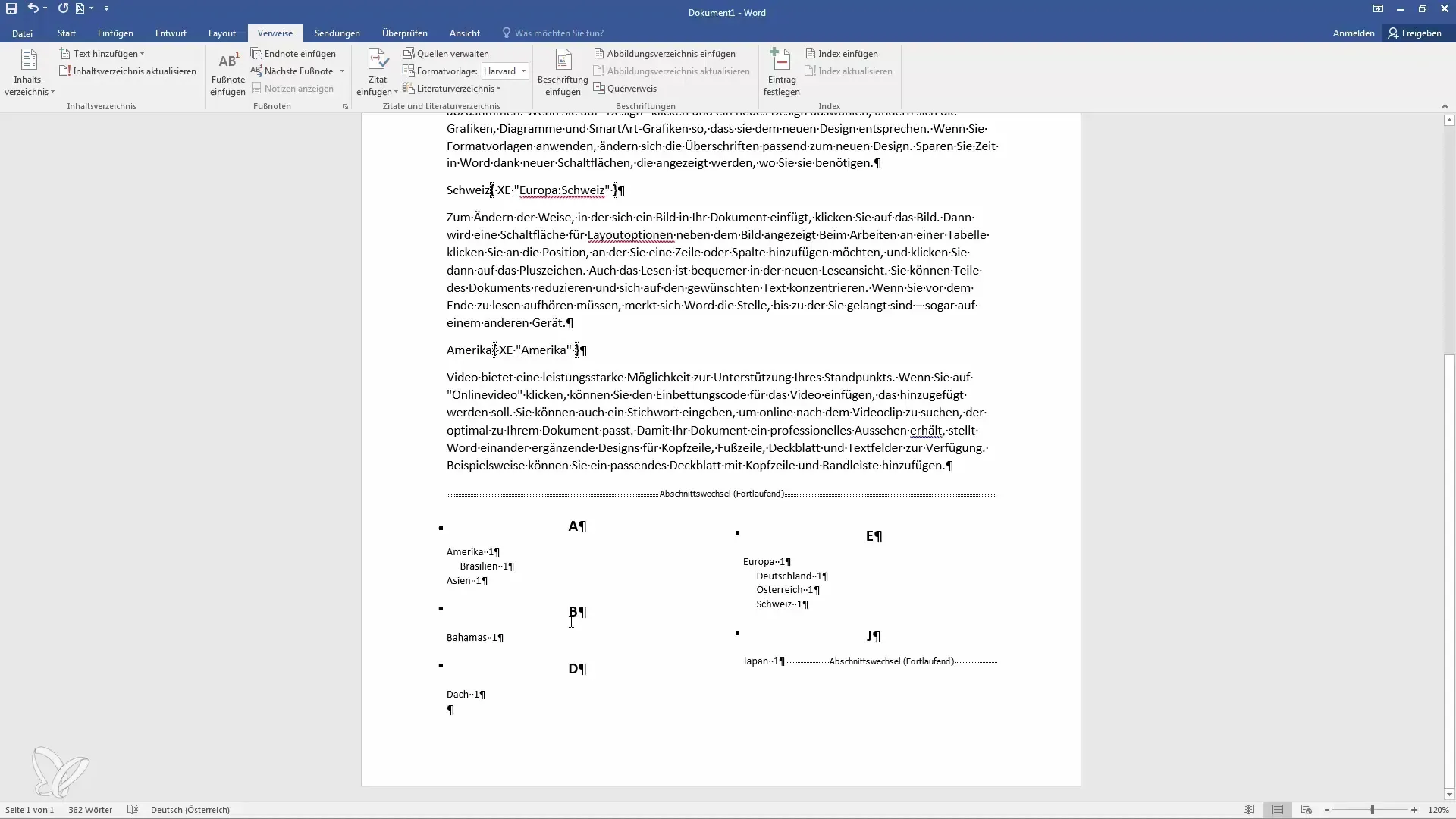
Go to "Insert Index" to change the formatting and update the structure of your index. You can use different formatting styles.
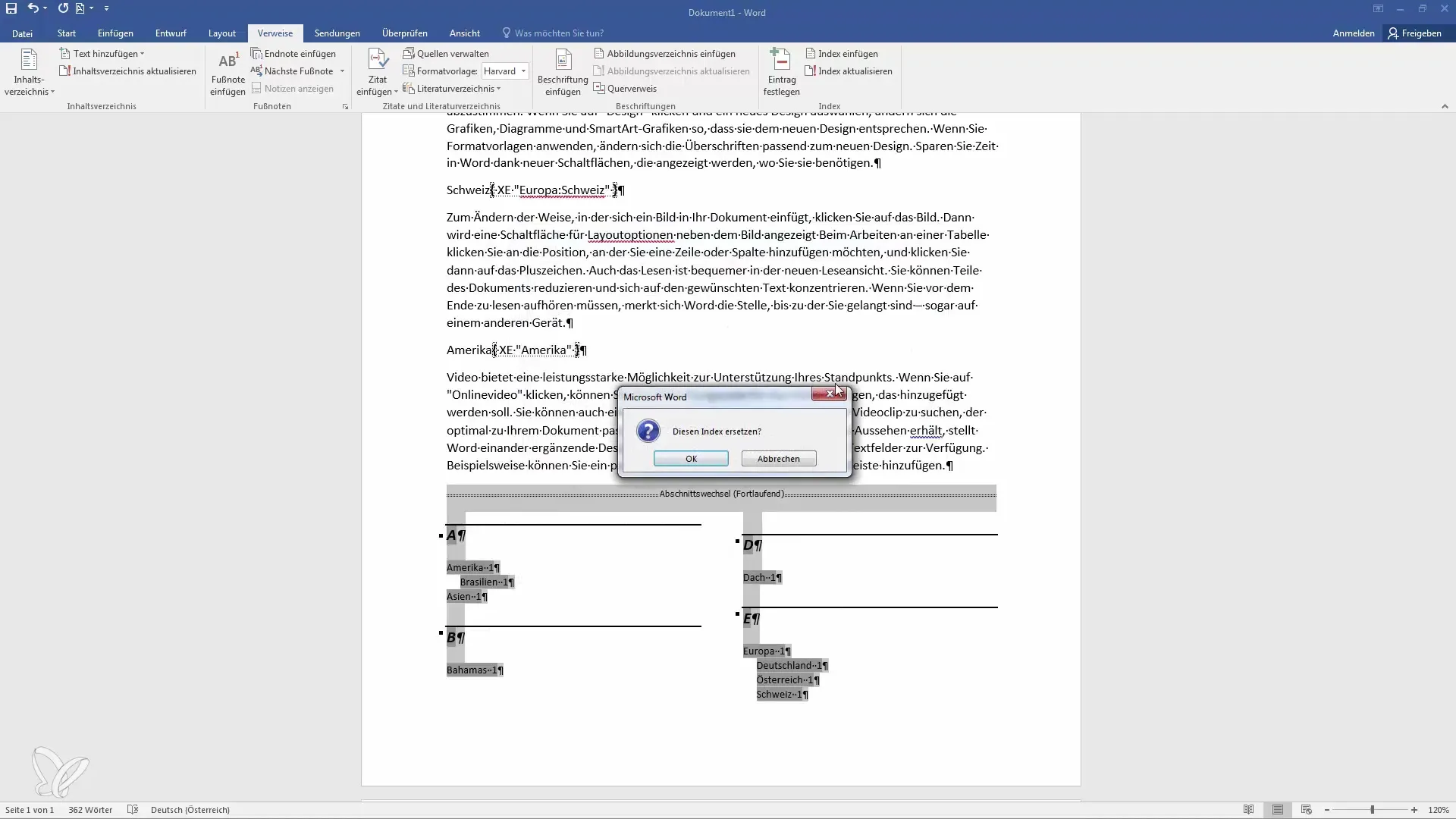
To further customize the index, add a heading "Index" to clearly separate the main text from the index.
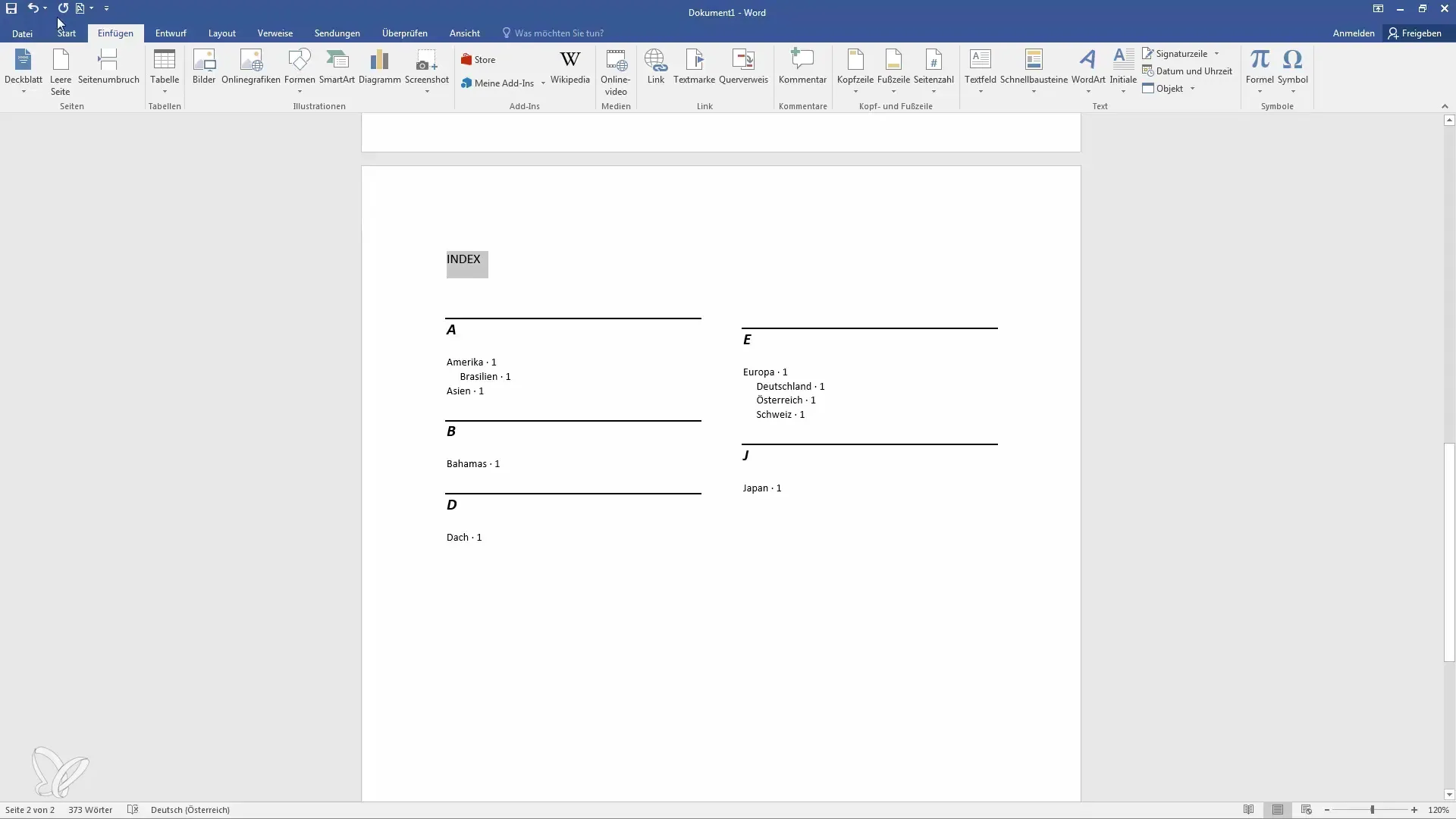
When breaking pages or adding new content, update the index again to ensure that all information is correctly listed.
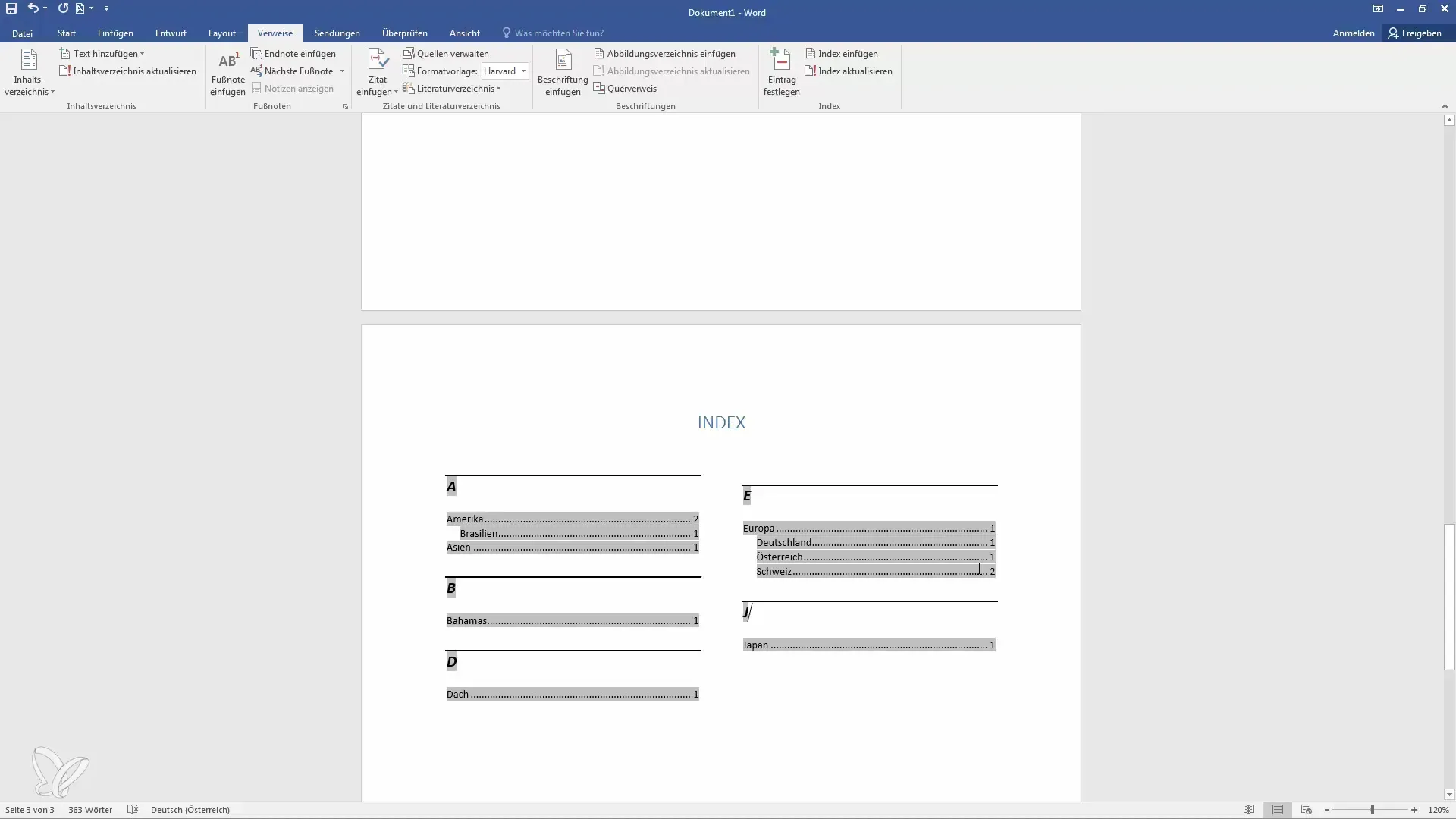
You can also refer to other terms in the index through "See also" entries. This shows readers that if they are looking for cheese, they should also consult Switzerland.
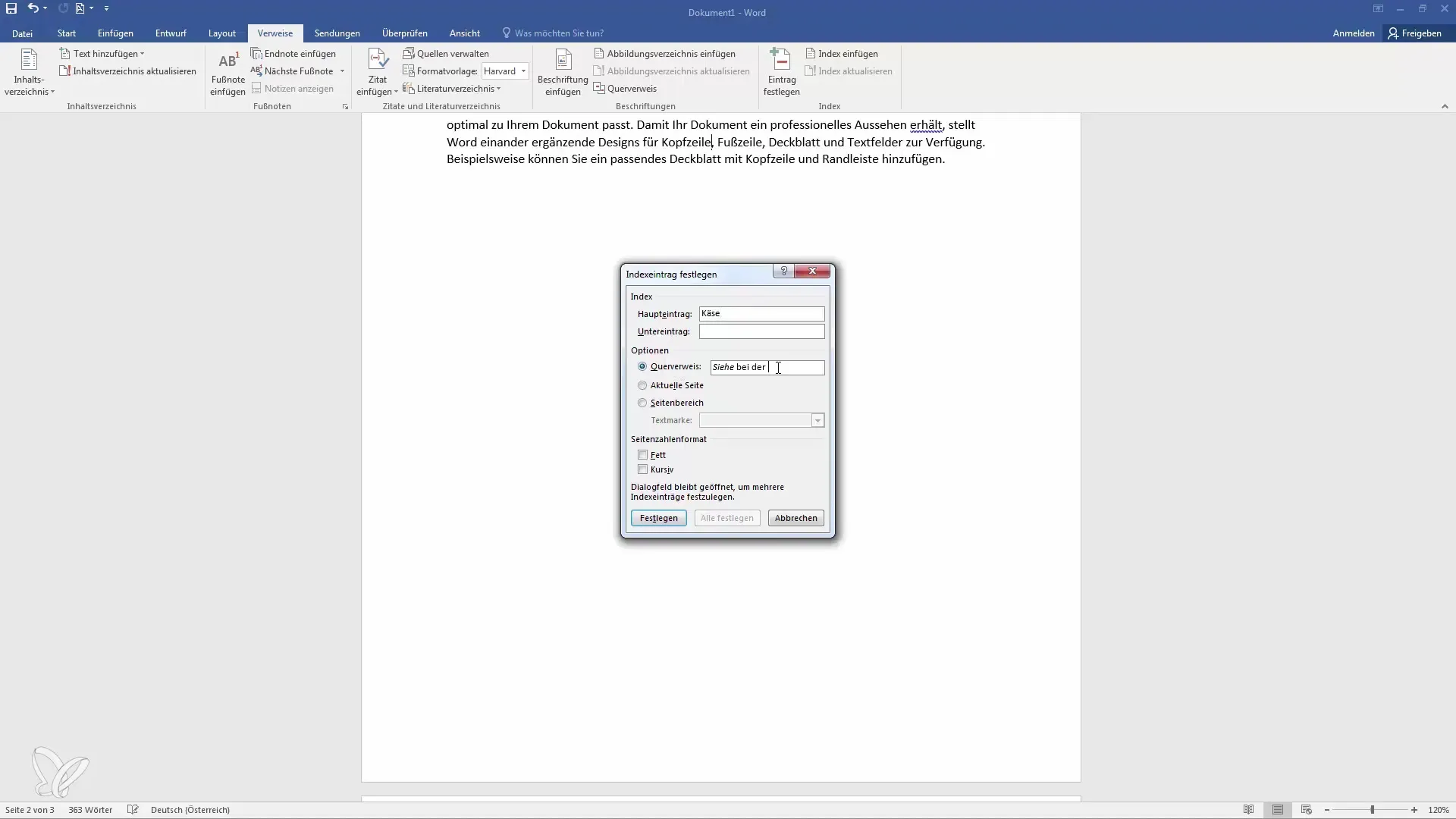
Finally, you have the option to use a so-called concordance file to automate the process of creating index entries. However, this method is not always ideal, as it could also include each term multiple times.
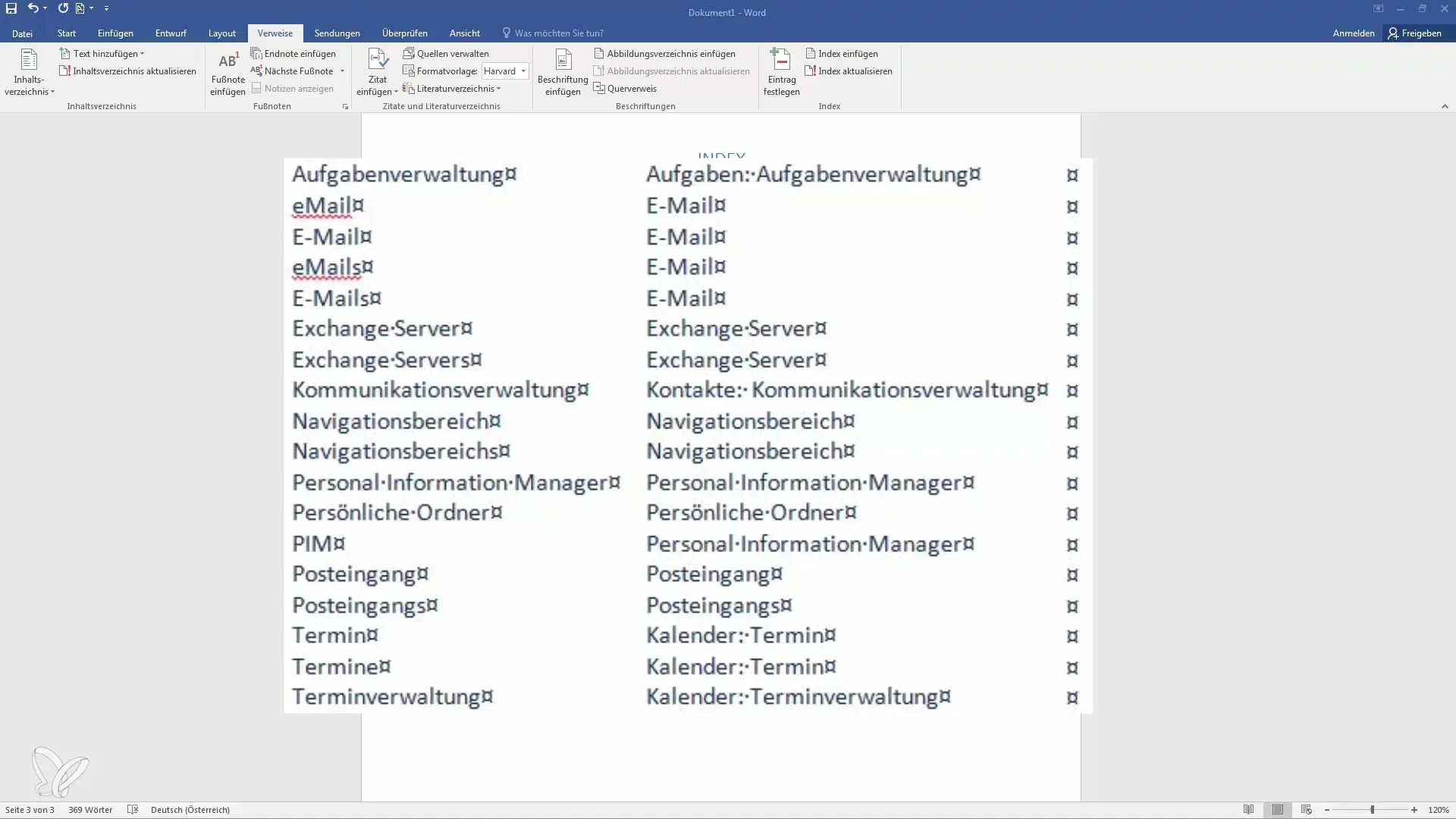
I recommend creating the index manually as described above, as this ensures the best clarity and saves you a lot of time when working on it while writing.
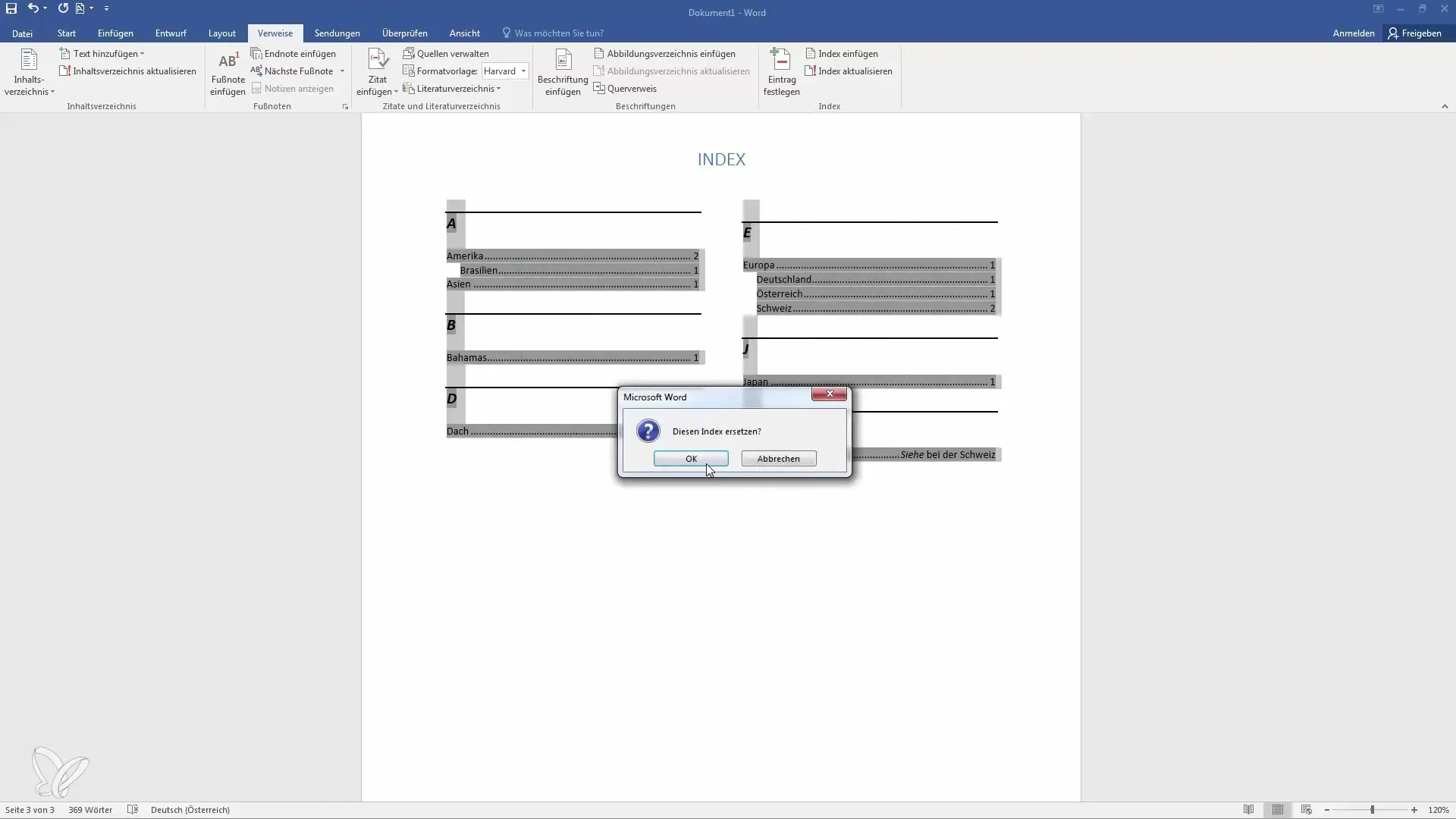
Summary
Creating an index in Word can help you make your document more organized and user-friendly. By following the steps, you can easily define, update, and organize entries without much effort. Use these techniques to optimize your work and make it easier for your readers to access the information.
Frequently Asked Questions
How do I create an index in Word?Go to "References," select "Mark Entry," and add your main entries as well as subentries.
Can I update my index later?Yes, you can update the index anytime by right-clicking on it and selecting "Update Field."
How do I add references that link to other places in the index?Use the "See also" function to link additional entries.
What is a concordance file?A concordance file is a table that helps you automate the creation of entries for your index. It consists of two columns, with the left column containing terms and the right column containing corresponding texts.
Is it better to create the index manually or automatically?Manual entries provide more control and prevent too many redundant entries from forming in the index.


